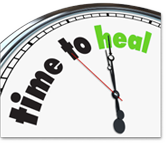Perscription Drug Addiction
Prescription drugs are medications prescribed to patients by physicians for the treatment of a specific medical condition such as pain, anxiety, or disease. Although these drugs can benefit the patients to whom they are prescribed, prescription drugs are addictive and dangerous when abused. According to the Office of National Drug Control Policy, the abuse and addiction of prescription pain medication is the nation’s second-most prevailing drug problem.
The three most commonly abused prescription drug classes include opiates which are painkillers; depressants, used to treat anxiety, panic and sleep disorders; and stimulants prescribed for Attention Deficit Disorder (ADD), Attention Deficit Hyperactivity Disorder (ADHD), some sleep disorders, or as an aid to weight loss.
Opiate addicts get hooked on the medication because of the way it affects the user’s brain. If the opiate drug is used regularly and to excess, the brain stops producing natural painkillers. As a result, a physical dependence on the drug is created. The user goes through alternate periods of feeling alert and then drowsy. Using opiates affects the user’s ability to reason clearly, respiration slows, and reflexes are impaired.
Central nervous system depressants are commonly abused by individuals who desire the sedative effect of these medications. Those who are addicted to stimulant drugs may use depressants to counteract the hyperactivity caused by the stimulants. Early signs of abuse of these medications are slurred speech and inappropriate emotional and physical reactions to usual circumstances. Extremely slow movements and unusual drowsiness are also common among abusers of these drugs. Additional symptoms may include; lack of coordination, memory problems, confusion, dizziness and depression.
Stimulant prescription medication is often abused by those who need high energy or wish to lose weight quickly. Consequently, extreme hyperactivity and rapid weight loss are early signs of stimulant prescription drug abuse. As is common with all prescription drug addicts, the person will use the drugs up faster than prescribed. Prescription stimulant abusers might require less sleep than normal, and they often become anxious and irritable.
Opiate and depressant drug abusers who become addicts will eventually develop serious physical symptoms. These can include malnutrition, liver disease and possible dementia. Stimulant abusers who continue to increase in the use of stimulant medications will also experience malnutrition, decaying teeth, gum disease, rapid heartbeat and increased danger of cardiac arrest. They might also experience extreme paranoia, and sleep deprivation that can continue for days at a time.
If you or your loved ones are experiencing the adverse effects of prescription drug abuse, contact us at. We have experienced what you are going through. There is no quick solution for your prescription drug addiction. Melrose Recovery Center offers you a community of people who have overcome similar challenges to your own. We have professional group facilitators, most of whom have been where you are now. Their understanding of your problems comes from their personal experience. They now live rewarding lives, proving that a clean and sober life can be achieved.
Many of our staff have successfully transitioned from addiction to recovery and they have experienced many of the same challenges you are facing. Because of this you can be confident in discussing your problems, issues and concerns with them. We offer you a safe, supportive environment which gives you the opportunity to learn about the disease of addiction, learn about yourself, understand underlying causes which may be driving your unwanted behaviors, and give you the tools you need for a permanent recovery. Call us today for help, (855) 512-5033.

